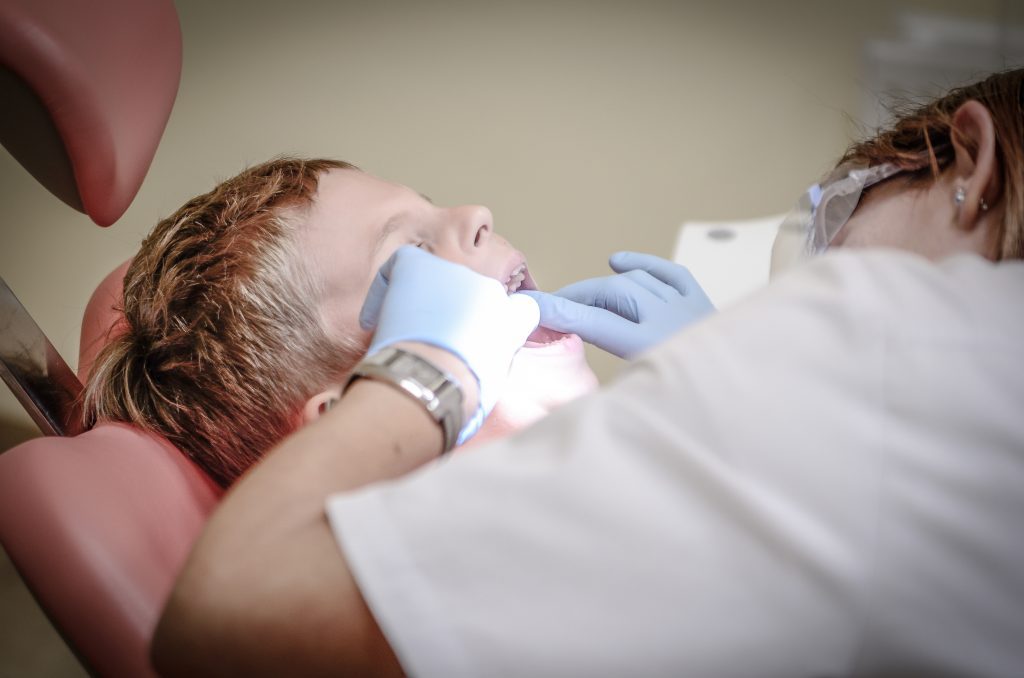By Allison Sadlier // SWNS
New York office - 646-873-7565 / usnews@swns.com
NEWS COPY w/ VIDEO & INFOGRAPHIC
Ever delayed a dental or medical procedure because of your wallet? You’re far from alone since one in two Americans have postponed a procedure due to cost, according to new research.Ever delayed a dental or medical procedure because of your wallet?
You’re far from alone since one in two Americans have postponed a procedure due to cost, according to new research.
A study examining how people pay for unexpected medical or dental bills found that four in five people have experienced the shock of a medical emergency within their immediate family, with many forced to turn to unorthodox methods to make the payments.
From chipped, infected or abscessed teeth to stitches, appendicitis, and broken bones, emergency trips to the hospital or dentist can leave families footing an expensive bill afterwards ‒ one in two people surveyed knew someone in their immediate family who experienced a dental injury.
The new survey of 2,000 Americans found that the average emergency medical bill is $12,126.22 before any deductions or help from insurance to cover the cost.
Unfortunately, even with assistance from insurance, the average person still faced paying 49 percent of the bill out of pocket ‒ and that takes some time.
The results emerged from a study conducted by OnePoll on behalf of DentalPlans.com, which also found it took the average respondent 2.4 years to completely pay off a hefty medical or dental bill.
The data also showed 34 percent of those who had a medical or dental emergency ended up delaying payment or flat-out running away from the bill.
But people weren’t afraid to think outside the box in order to pay down those bills ‒ a quarter of people even turned to fundraising and crowdsourcing for extra cash.
Many people weren’t prepared to shell out after their plight since two in five didn’t have any money set aside in case of an accident.
Others took a traditional route to pull money together and went on a strict budget (33 percent), started a home business (24 percent), or got a second job (18 percent).
Jenn Stoll, Chief Commercial Officer for DentalPlans.com said:
“Accidents happen and being financially prepared for the unexpected can be a huge help, and stress reducer. Find out what your medical and dental insurance covers, and what they don’t, and then determine affordable ways to close those gaps so you’re not left with a hefty bill. Whether saving money each month or joining a health or dental savings plan, your wallet and sanity will thank you later.”
Despite the majority of Americans going through an emergency, 47 percent still aren’t putting money away in the event of an urgent medical or dental procedure ‒ and that number jumps to 62 percent among people over 50 years old.
Results showed that those surveyed aren’t saving for emergencies because: they don’t have money to spare (48 percent), think insurance will cover them (29 percent), are already paying off medical bills (14 percent), or don’t consider it a financial priority (41 percent).
Retirees and soon-to-be retirees are particularly concerned about medical costs piling up. Almost half revealed cost is the biggest factor when deciding to go to the doctor or dentist.
Dentures and veneers, broken bones, trauma, hip and knee replacements, and lost teeth all ranked in the top five potential emergencies retirees fear paying for.
More than half of Americans over 50 admitted they plan on letting Medicare handle any expenses. The other popular options include health insurance (39 percent) and Medicaid (24 percent).
Stoll added:
“Relying solely on Medicare can be risky because it doesn’t cover your whole health – dental, for instance, is typically not included and can be extremely costly without insurance. Coupling Medicare with dental insurance or a dental savings plan, which is an affordable alternative to traditional dental insurance, can provide you with peace of mind, knowing your whole body is protected. While these plans are not insurance, they can save plan members between 10 and 60 percent on most procedures, including costly ones like root canals, implants and more. Just keep in mind that you won’t be able to save on procedures Medicare does cover. And, you should clear it with your provider in advance, so you know exactly what to expect financially.”
TOP 5 COMMON EMERGENCIES
Chipped tooth 28%
Lost tooth 25%
Stitches 23%
Broken bones 21%
Trauma 15%
HOW PEOPLE PAID OFF MEDICAL/DENTAL BILLS
Strict budget 33%
Home business/alternative income 24%
Gift from family or friends 22%
Got another job 18%
Sold belongings 17%
Applied for a personal loan 17%
Rented out part of the home 6%
TOP 10 MEDICAL WORRIES FOR RETIREES
Dentures/veneers 27%
Trauma 27%
Broken bone 23%
Hip/knee replacement 22%
Lost tooth 20%
Root canal 19%
Cavity 13%
Chipped tooth 12%
Stitches 11%
Concussion 11%
FACTORS IN DECIDING TO GO TO DOCTOR/DENTIST
Cost 45%
Time 19%
Fear of bad news 11%
Don’t like it 11%
Travel 8%
